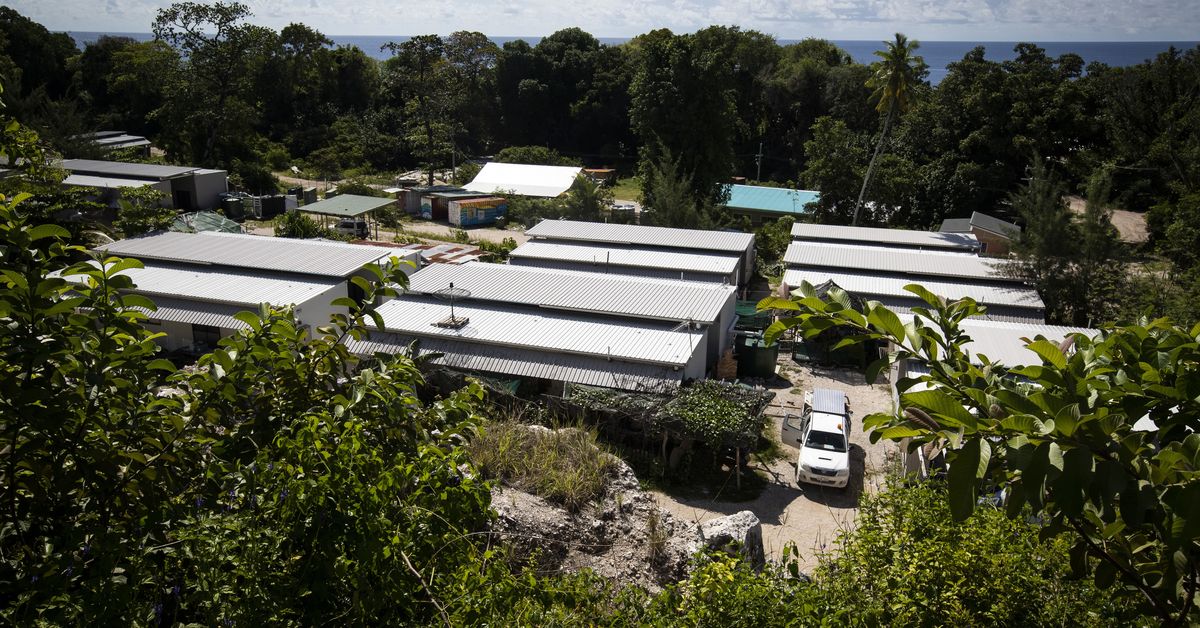The first member of the NZYQ group has been sent to Nauru under the federal government’s controversial plan to deport hundreds of people to the small Pacific nation.
Home Affairs Minister Tony Burke signed a $408 million deal to offload the group of about 350 foreign-born criminals who were released from indefinite detention after a landmark court ruling to Nauru earlier this year.
Nauru President David Adeang told his parliament on Friday that the first person had arrived under the resettlement agreement.
 Home Affairs Minister Tony Burke signed a $408 million deal with Nauru. (Alex Ellinghausen/SMH)
Home Affairs Minister Tony Burke signed a $408 million deal with Nauru. (Alex Ellinghausen/SMH)
Burke confirmed that the first member of the group was deported to Nauru on Friday.
“Nauru confirmed last Friday that the first transfer had occurred,” he said in a brief two-line statement.
“When someone’s visa is cancelled, they should leave.”
The NZYQ cohort refers to the group of foreign-born criminals, including some murderers and paedophiles, who were detained until the High Court ruled that the indefinite detention of non-citizens was unconstitutional unless there was a plan to remove them from the country in November 2023.
They were released on bridging visas until the federal government rushed through laws with support from the opposition to manage their release through curfews and monitoring, with many having their visas cancelled on character grounds and being redetained.
The government last year also boosted its power to deport members of the group to third countries under new migration laws.
Under the controversial resettlement deal with Nauru, the nation will provide long-term residence to those who have no legal right to stay in Australia.
Australia will pay Nauru an additional $70 million each year to cover the costs of the program.
 Australia will pay Nauru an additional $70 million each year to cover the costs of the program. (AP)
Australia will pay Nauru an additional $70 million each year to cover the costs of the program. (AP)
The deal was officially activated upon the first detainee’s transfer on Friday.
“The government anticipates this arrangement with Nauru may be challenged in the Australian courts. We are confident in the laws we put in place last year to protect community safety,” Burke said in a statement in February.
The transfers are separate from Australia’s ongoing offshore processing system in Nauru.
Human rights lawyers, activists and the Greens have strongly opposed Australia’s deportation plan for fear that it may breach international human rights obligations.
“No one should be punished because of where they were born. Everyone should be equal under the law no matter where they’re born,” Greens Senator Sarah Hanson-Young said last month.
The United Nations Human Rights Committee in January ruled that Australia has responsibility for the people it transfers to Nauru or elsewhere under offshore processing or transfer agreements, as well as finding solutions for their situation.
“A State party cannot escape its human rights responsibility when outsourcing asylum processing to another State,” Committee member Mahjoub El Haiba said.
“Where a State exercises effective control over an area, its obligations under international law remain firmly in place and cannot be transferred.”

